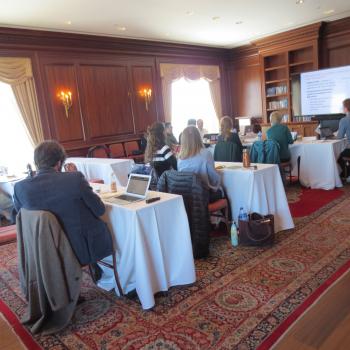Last updated on: January 10, 2019 at 10:20 am
By
Connor Wood
Why do so many people worship invisible beings, accept the authority of millennia-old texts, or or congregate on weekends in buildings for no apparently practical reason? The cognitive and bio-cultural sciences of religion are burgeoning as researchers attempt to answer these questions in the context of our secularizing culture. According to one popular hypothesis, people naturally tend to be religious because our brains, evolved to survive in the dangerous Paleolithic era, are hyper-sensitive to signals of agency, or personhood –... Read more
















